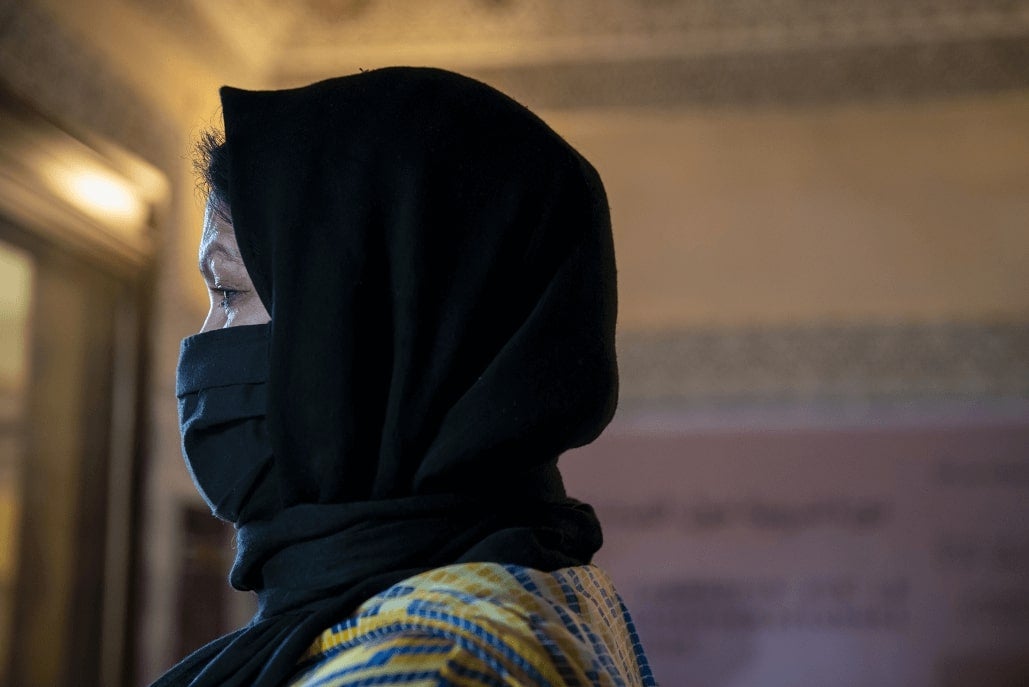In the words of Amina: “Perhaps the law is finally on my side this time”
Date:

![]()
I never thought my life would come to this. I would have liked our family to stay together. I often thought I should just give up this battle - live with my husband in the same house to preserve our family ties. It would be better than being shamed as a divorced woman. But he was very violent. He was threatening me all the time that the house belonged to him entirely and that he would sell it and throw me out on the streets. This is not a life.
The house was also mine, so selling the furniture was the only way he found to get back at me. When he started to sell all our furniture, I went to the police for the first time to file a compaint. He left me with no other choice.
I always feared the police. You hear stories of women going to the police station to report their violent husbands and they get told ‘you deserve it’. I have friends who went to the police station before the Police Units for Women Victims of Violence were created. It was a nightmare from what I heard. They had to wait in a room full of men, feeling vulnerable, misjudged, and harassed. On the way to the police station, I was terrified. After what I went through, the last thing I wanted was to feel embarrassed, ridiculed, or humiliated. If I was treated badly, I would have left the police station.
Luckily, the experience turned out to be much better than expected. A friendly and comforting policewoman welcomed me. You know, it is always easier to talk to women when it comes to sensitive matters. While I was there, a bloodied-faced woman arrived at the station. She was in such bad shape! The police immediately called for medical help, and she was transferred to the intensive care unit. The Police Units for Women Victims of Violence offer women a convenient, comfortable, safe setting. I felt understood and valued.
Women are often pressured into giving up their rights. I even thought about giving up my job because of the violence at home, but I am glad I chose to wrestle back control and my self-esteem instead. Even if the salary is small, a job gives you social status. It gives you independence. My job has helped me claim my life back, which I never thought was possible. My job has allowed me to feel strong, and empowered. I feel safer now, well cared for, and less lonely. Perhaps the law is finally on my side this time.”
* Name and personal information have been changed to protect the identity of the individual
Amina’s case was investigated by the police and referred to the Prosecutor. A Police Unit for Women Victims of Violence arranged her stay at a shelter where she currently resides and waits for the court hearing. UN Women Morocco, with the support of the Government of Canada, supports the justice, police and social services sectors to enhance the quality, availability and accessibility of essential services for women and girls who experience violence in line with international norms and standards.
UN Women Morocco, with the support of the Government of Canada, supports the justice, police, and social services sectors to improve the quality, availability, and accessibility of essential services for women and girls who are survivors of violence according to international norms and standards.
UN Women, together with UNFPA, UNDP, UNODC and WHO, developed a Regional Flagship Programme to address Violence Against Women and Girls in the Arab States to bridge research with policy recommendations, provide guidance to adapt international standards in service provision to the region, and strengthen interagency understanding and collaboration in areas such as prevention. A key part of the programme includes the recent launch of the Handbook on Gender-Responsive Police Services for Women and Girls Subject to Violence. The handbook is being rolled out by UN Women with police middle managers across the region and gives practical, in-depth guidance on how to respond during crises like the COVID-19 pandemic; prevent violence against women and girls in conflict settings; and tackle online violence.